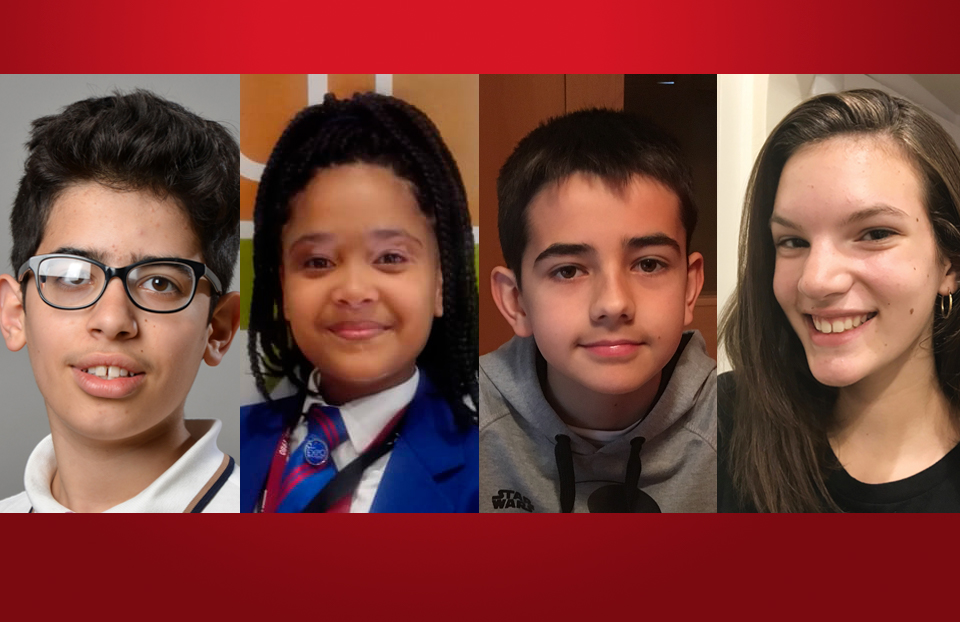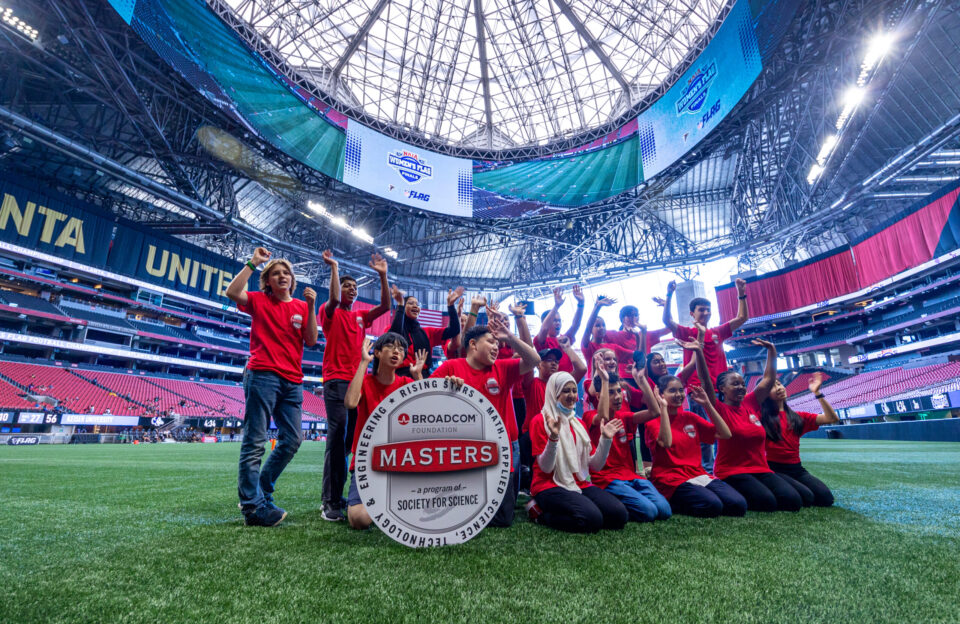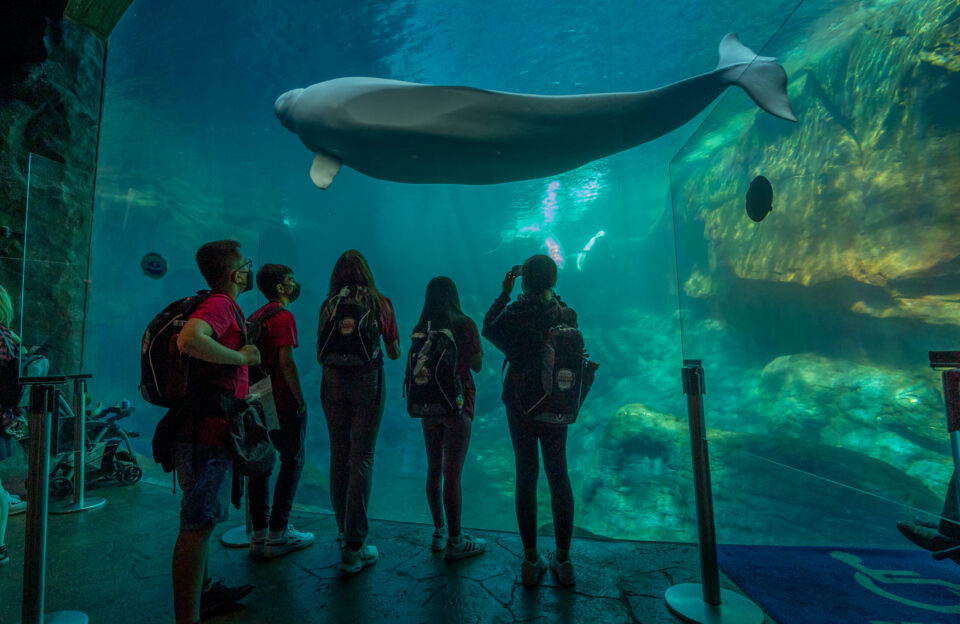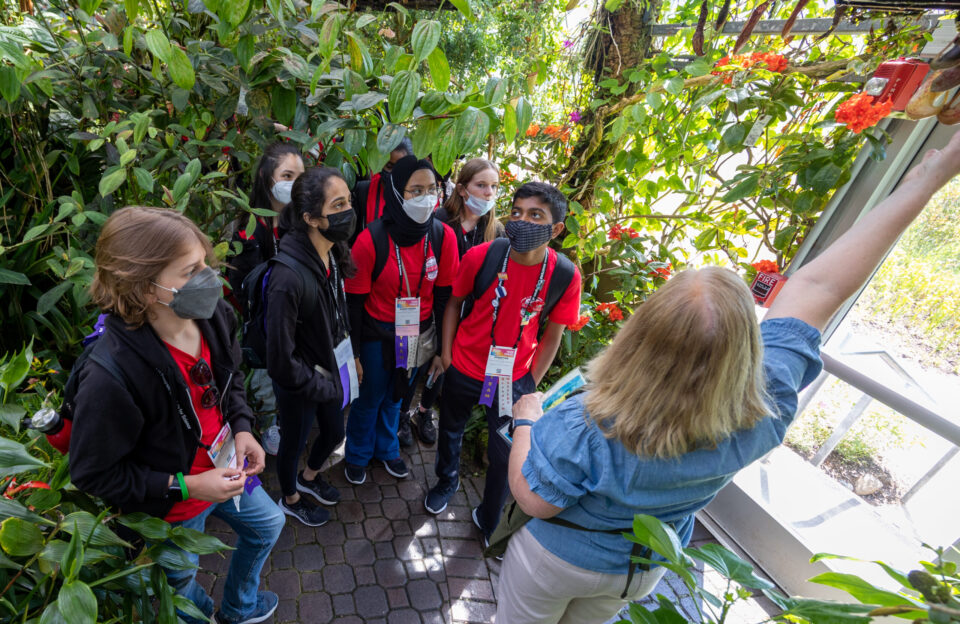Broadcom MASTERS International
BCMI: Meet 4 young scientists who are working to improve human health through their research

With many countries following shelter-in-place orders, students are finding themselves at home with their parents, including this year’s Broadcom MASTERS International delegates. They are adapting to learning from home and witnessing that in times of public health crises, scientists are one of the most trusted and authorized voices that society turns to. Read on to hear from four BCMI delegates who tell the Society about their experiences during COVID-19, traditions and cultures of their home cities and countries and how they are using STEM research to improve human health and deepen their knowledge of disease.
Tamzhin Valentine, 13
South Africa
Since she was a child, Tamzhin Valentine, has lived with vitiligo, a skin condition where patches of skin are characterized by a loss of pigment. She tells the Society that as a child she did not “understand why, I was treated differently while others could go out and play on a sunny day. Now that I am older, I know what other people living with this disease are going through.” She added, “I did this project to motivate and encourage myself from being unhappy and left out. This topic really helped me understand and support people living with vitiligo.”
For her BCMI project, Tamzhin surveyed her fellow students and community about their understanding of vitiligo. She also interviewed a professional skin therapist and others living with the condition and led an awareness campaign at her school. During her literature review, Tamzhin came across an article that described how “some African tribes think they are cursed when they have the condition.”
In the future, Tamzhin hopes to “formulate a substance that stimulates the release of pigments in areas of the body that it’s not found.” She would also like “to formulate a test where loss of pigment can be detected before birth and the mother can take a substance that restores the DNA that is responsible for the pigment of the skin.” One day, Tamzhin hopes to meet international model, Winnie Harlow, who has vitiligo. “I admire her confidence level living with this condition.”
Jan Trapero Gallart, 13
Spain
These days, after eating toast and ham or pancakes with sugar, typical breakfasts in his home country of Spain, Jan Trapero Gallart, logs onto his virtual classes. “I take part in online robotics and programming exercises every day. And, sometimes I practice the guitar, watching videos on the Internet because we don’t have online lessons at my music school.” Clearly, Jan’s passions are diverse, including both music and science.
In his BCMI science research project, Jan used the popular memory game called Simon, to deepen his understanding of Alzheimer’s disease. He tells the Society that, “the game would not cure Alzheimer’s, obviously, but I think it would work well as an occupational therapy, keeping patients’ minds active.” Jan’s inquisitiveness and drive to improve peoples’ quality of life keep him motivated. “Science is especially important to me because I like investigating. I would like to make a positive impact in the world, inventing or discovering something that helps people.”
Mary Shea Ballantine, 13
United States
Hailing from Louisville, Kentucky, BCMI 2020 delegate, Mary Shea Ballantine, looks forward to the Kentucky Derby every year. But for the first time since World War II, the Derby was postponed. Mary tells the Society, “Many people, including my family, look forward to watching the horses race around the track and betting on who will win! Other special symbols of the Derby include a rose blanket presented to the winner and crazy hats that the ladies wear!”
During the pandemic, Mary, has observed that the world is looking to scientists for their expertise, insights and a vaccine. “We are seeing that our lives, jobs and the world’s economy depend on science!”
Mary’s BCMI project was focused on the detrimental consequences of automotive exhausts on human lung functioning and the lung microbiome. “The bacteria I tested were probiotic, meaning necessary for our health.” She explains that when probiotics are killed, the risk of infection increases. “I discovered that automotive exhausts kill bacteria by decreasing their growth and motility, making them resistant to antibiotics.” Mary is committed to doing research that will bring a healthier future for humanity. She hopes that one day she can be a scientist like her STEM hero, Nobel Prize in Chemistry winner, Martin Chalfie.
Amos Paulete, 14
Uruguay
Born and raised in Uruguay, BCMI delegate, Amos Paulete describes the picturesque terrain of his country, known for its beach-lined coasts and the taming of horses in the fields. Situated in South America, Uruguay is a popular destination spot where tourists partake in the beauty of its rolling hills and waters.
However, Amos is concerned that toxic cyanobacterial blooms not only damage the water ecosystem, but also swimming in Uruguay’s oceans pose a risk to human health. The cyanobacteria produce toxins that are harmful to the human body, particularly the liver and the central nervous system. Amos explains that, “Because where I live is a place of tourism, we need to solve this problem. When cyanobacteria reproduce faster than normal, it can be dangerous for humans and wildlife. We did this project because people can’t swim at our beaches, because of the cyanobacteria.” Amos built a prototype of a drone, called a Cianobot, designed to detect these bacteria.
Amos says he believes the pandemic, “is teaching us how life can change, and it is important to respect all the people around you. If we work together we can stop COVID-19 from spreading.”
Read about six 2020 BCMI delegates whose projects focus on ways to help the environment and our planet here.


